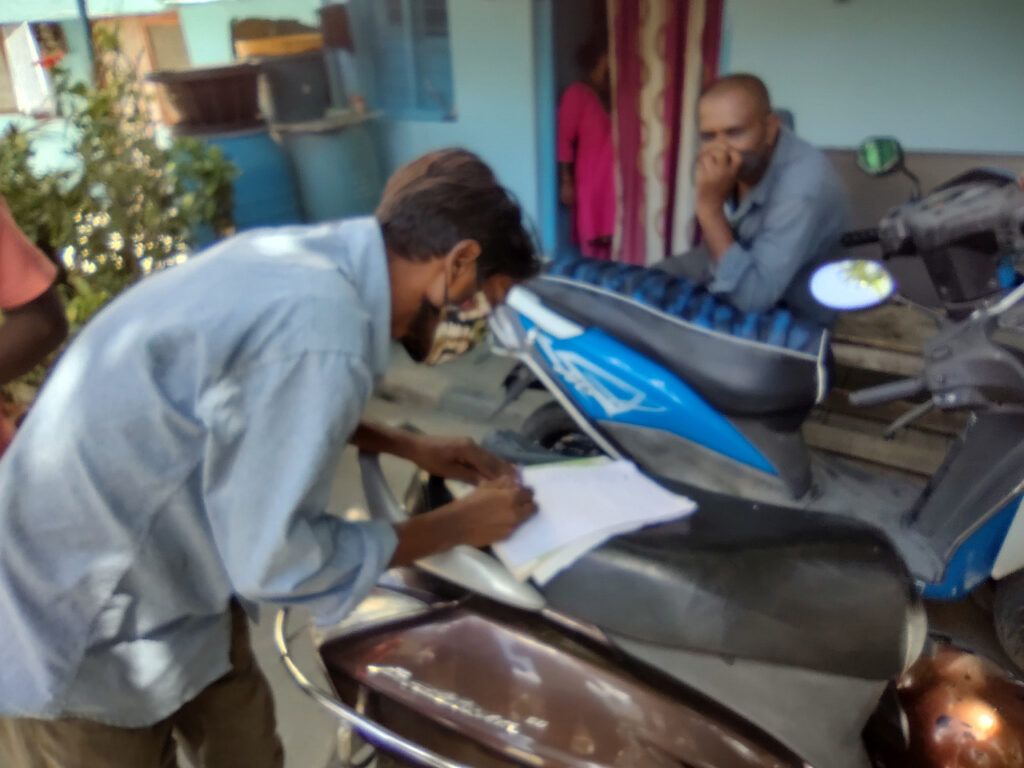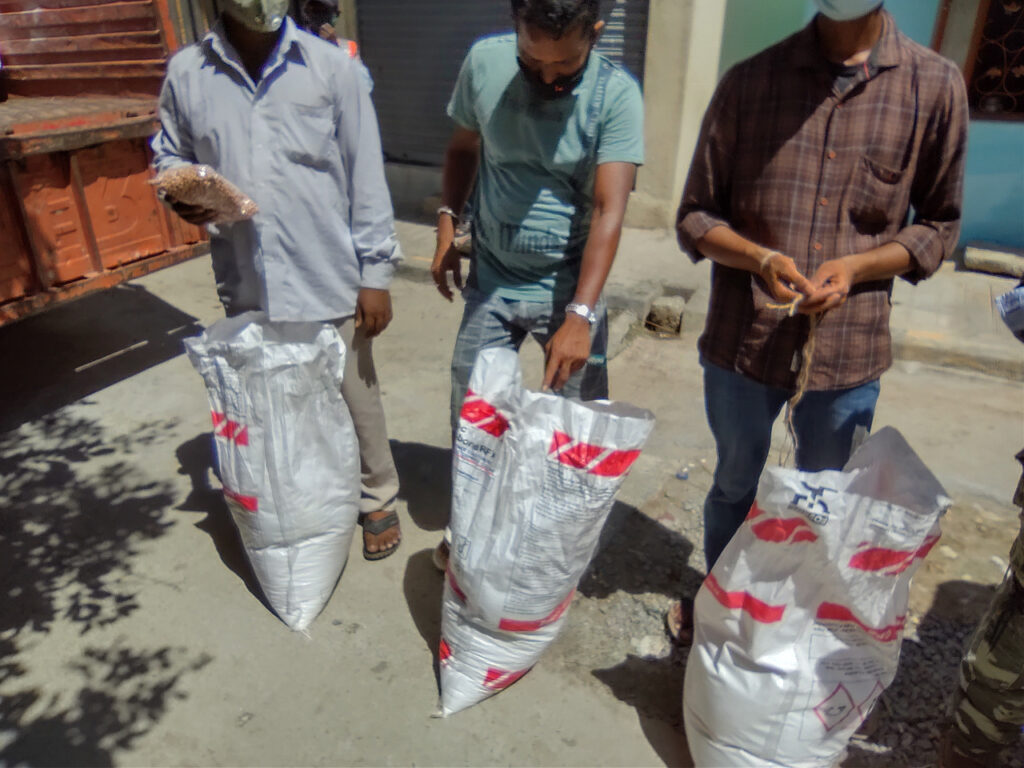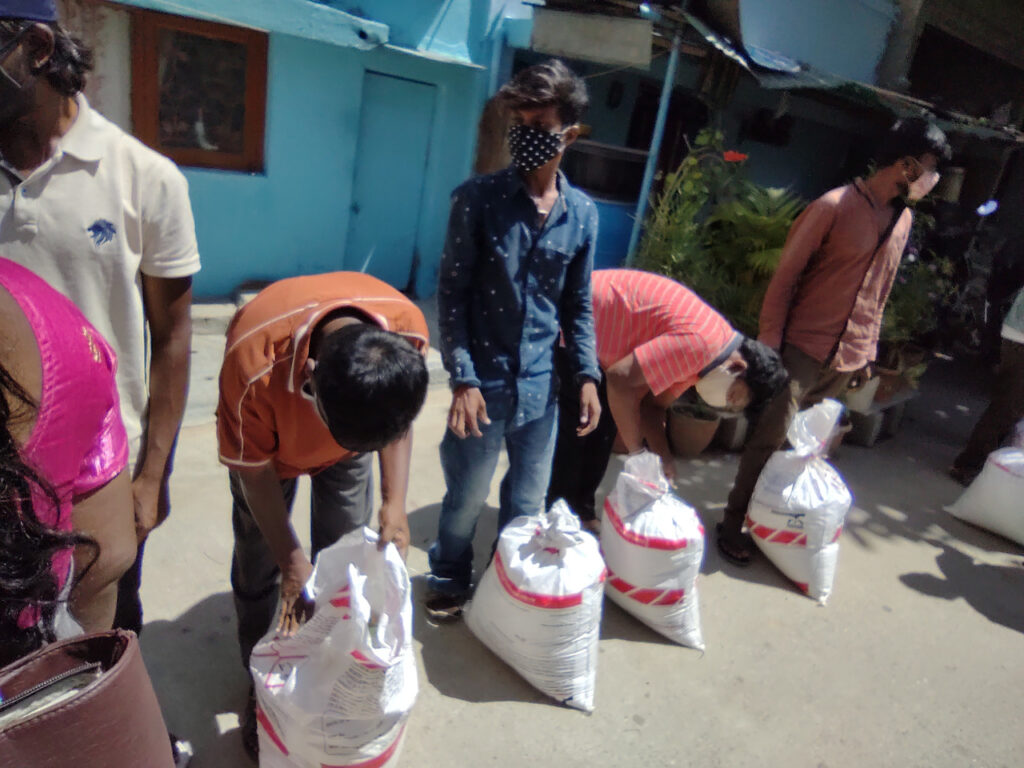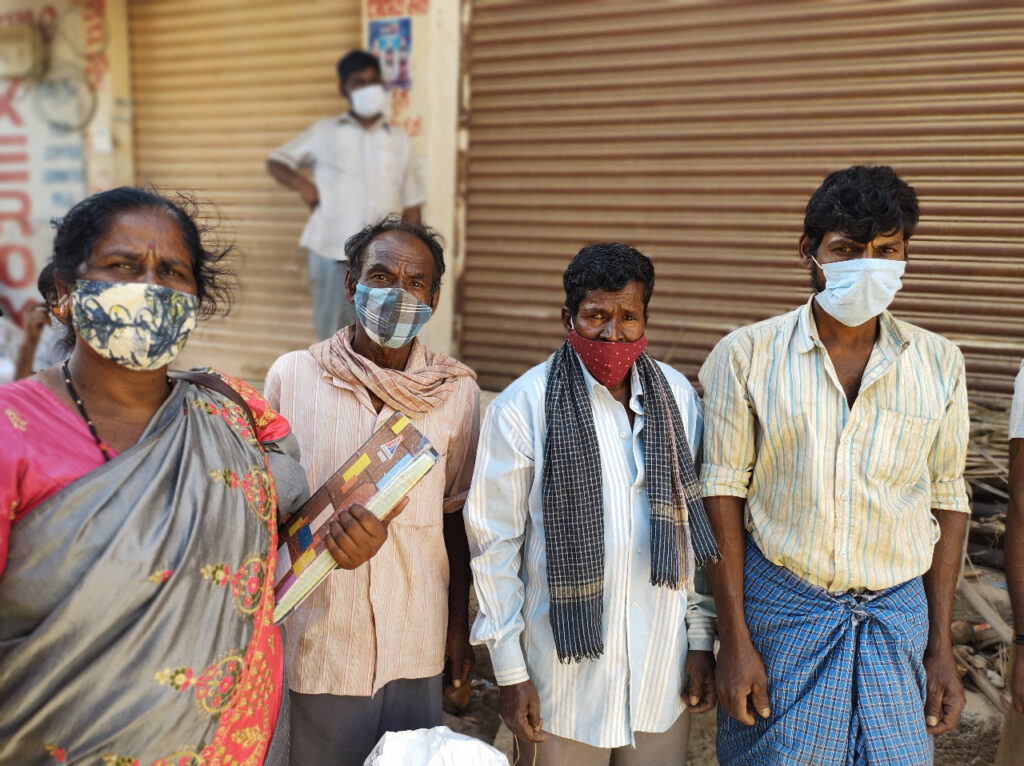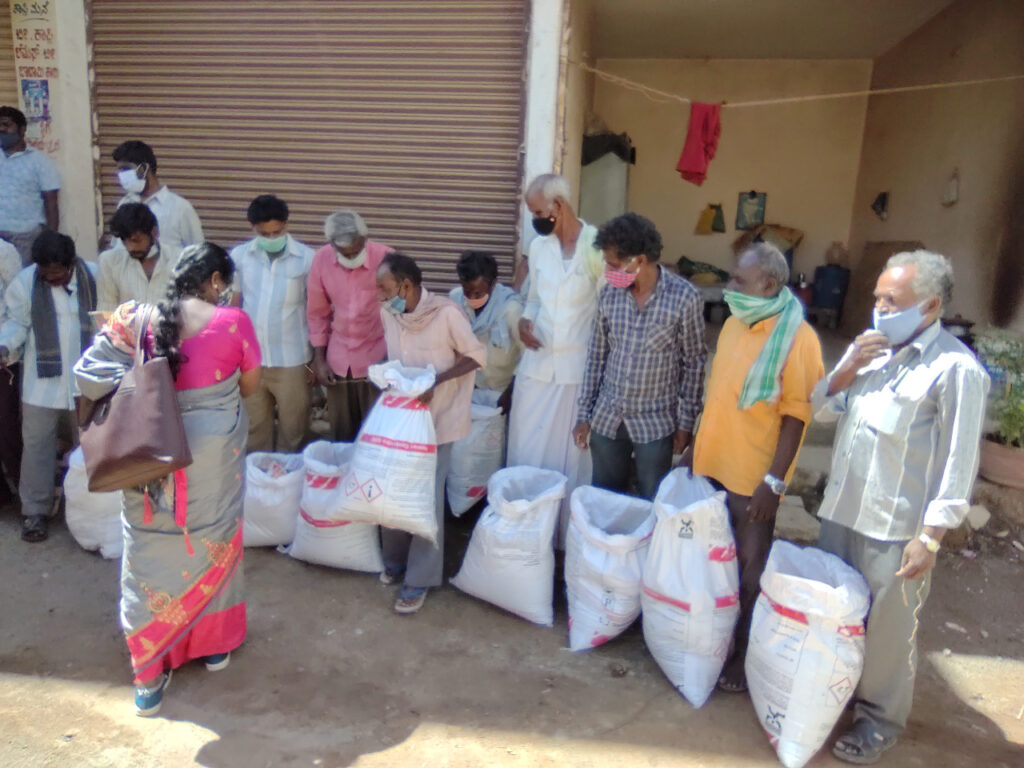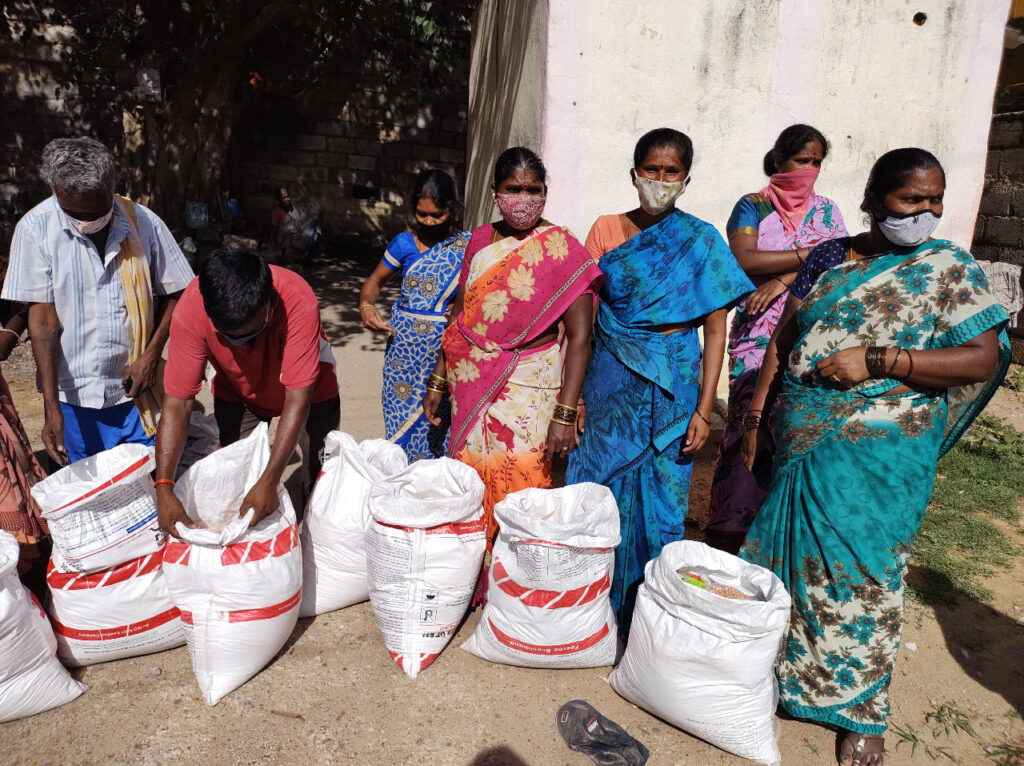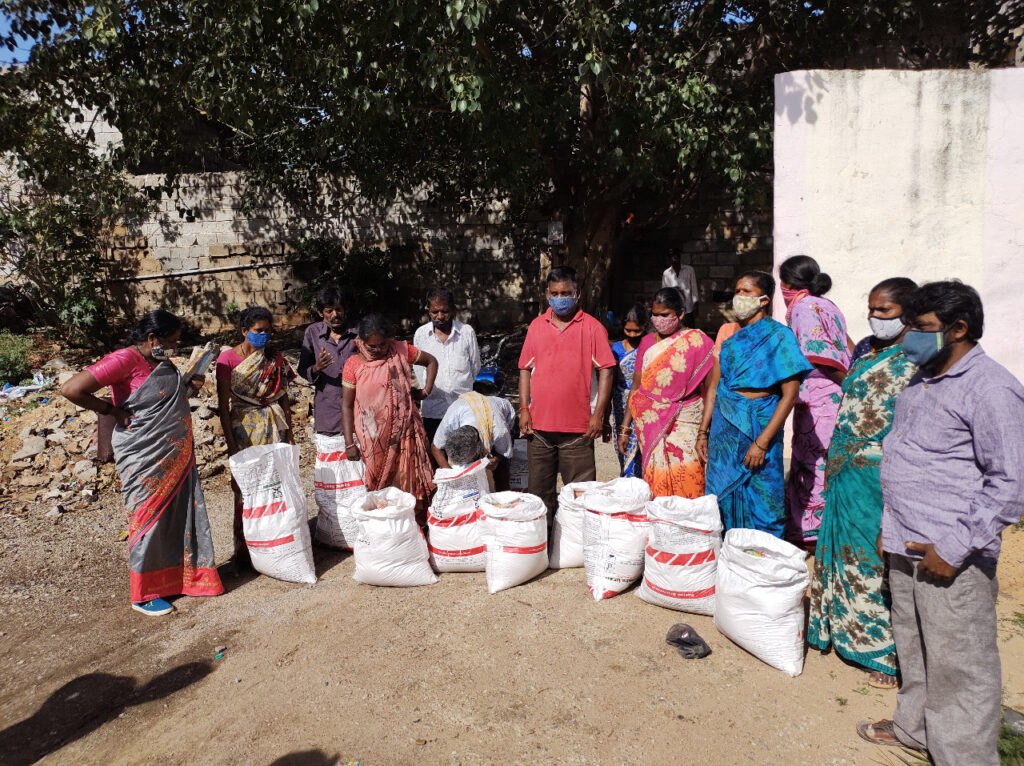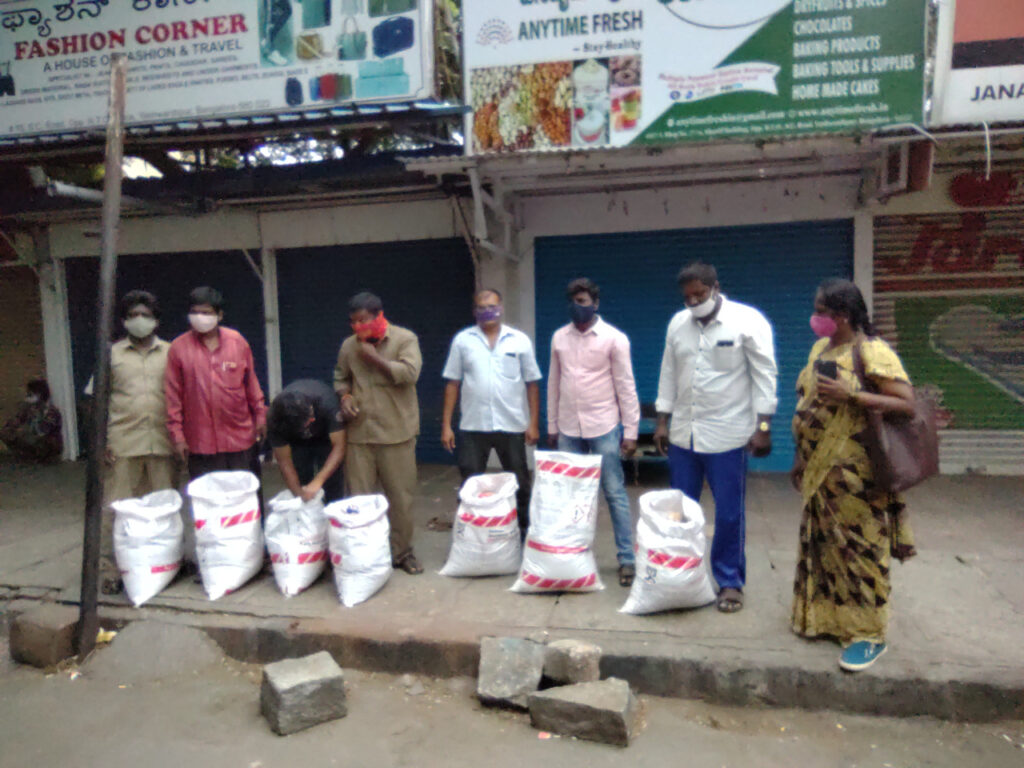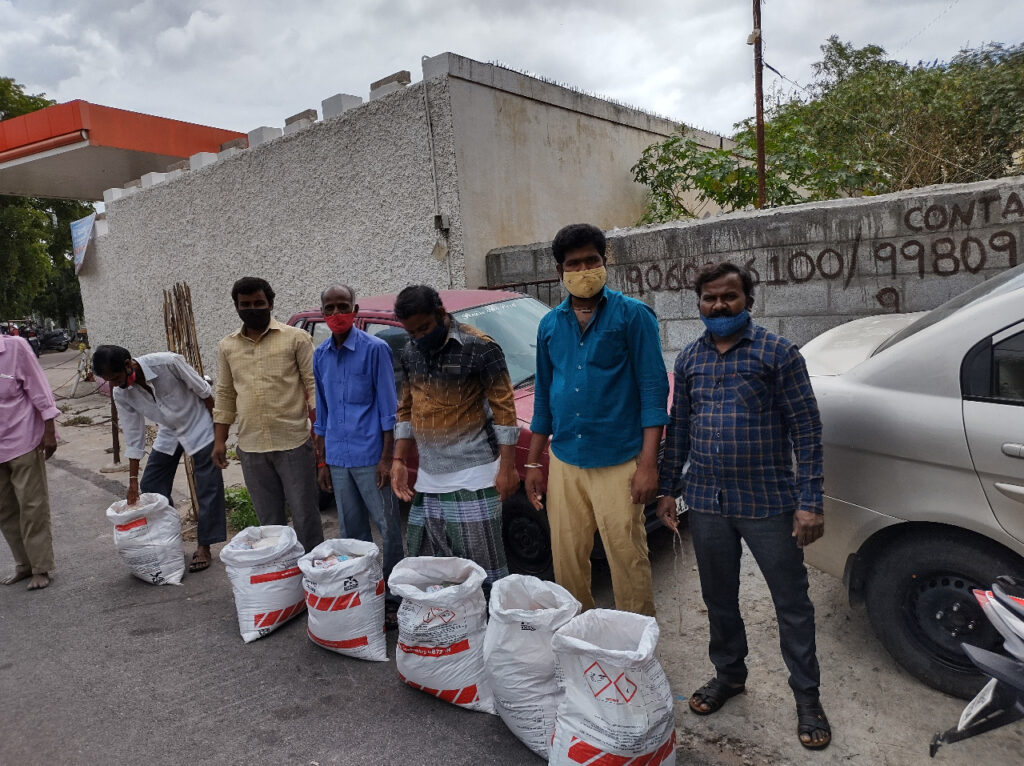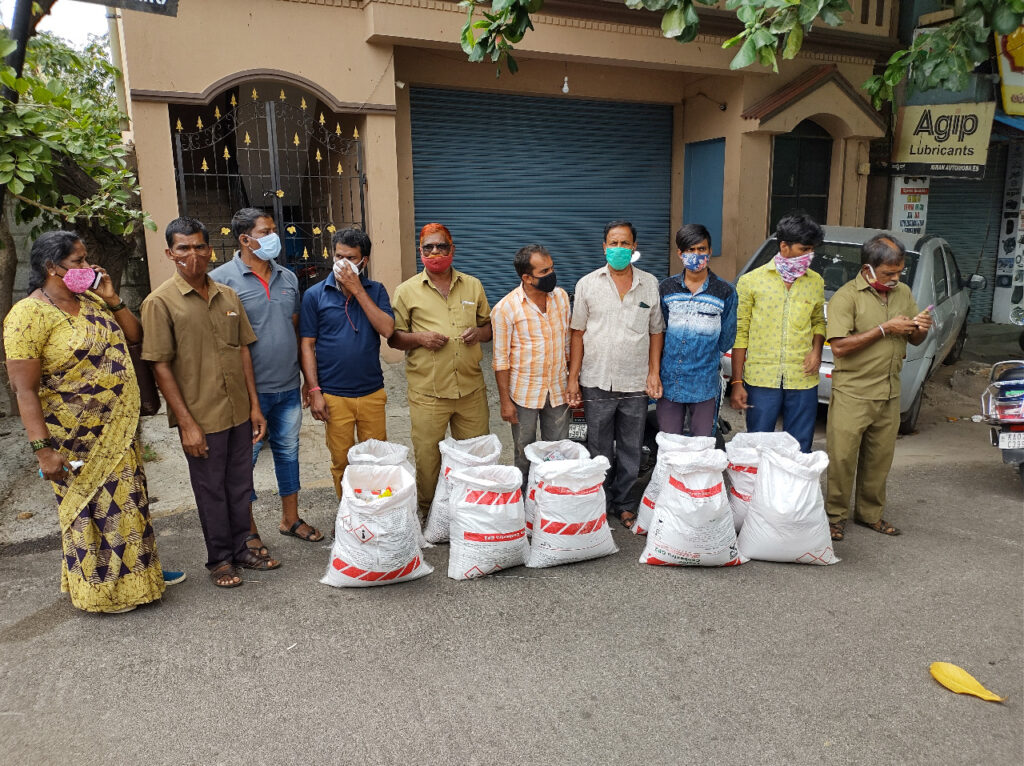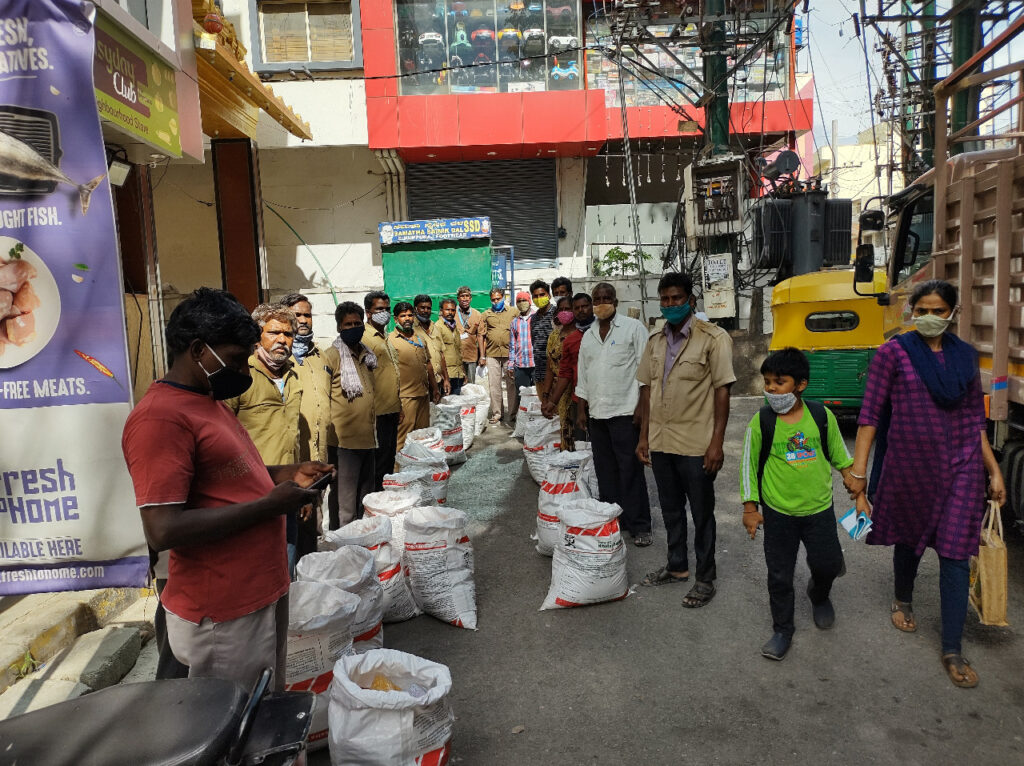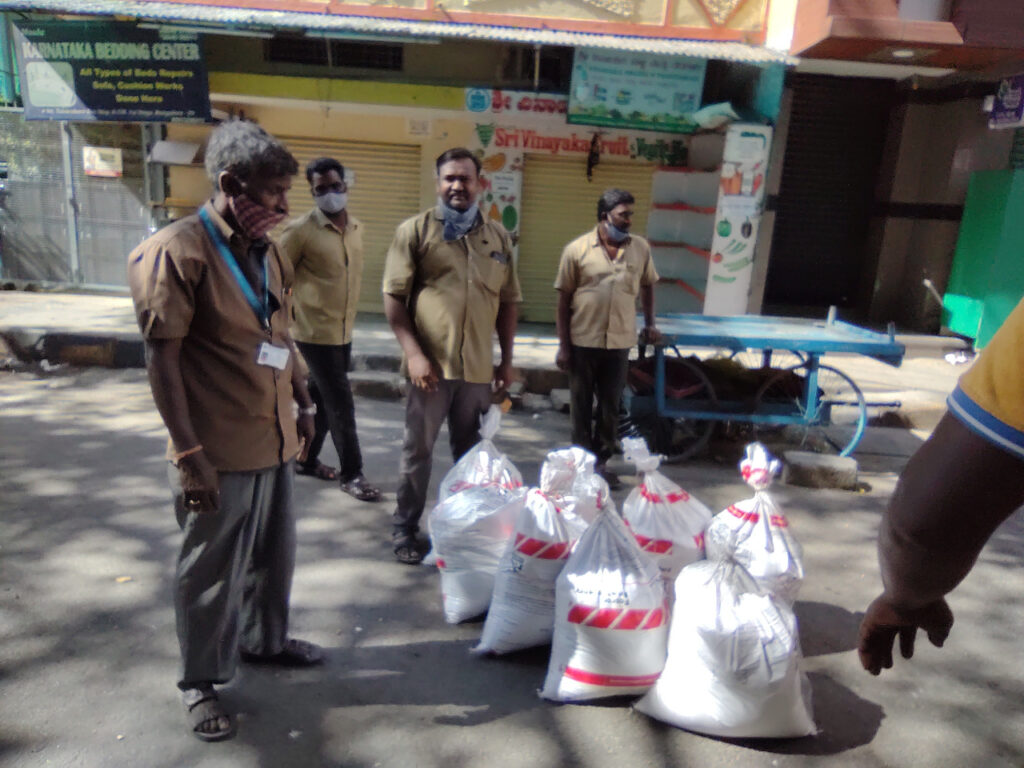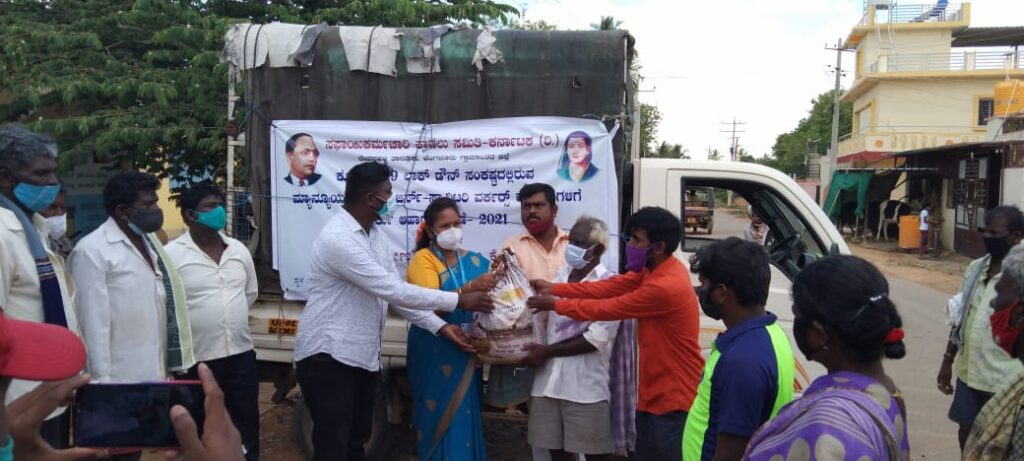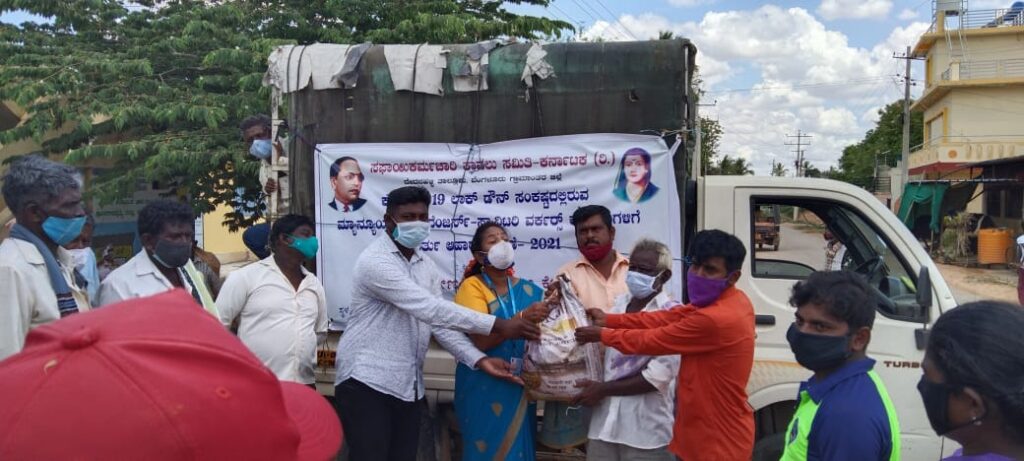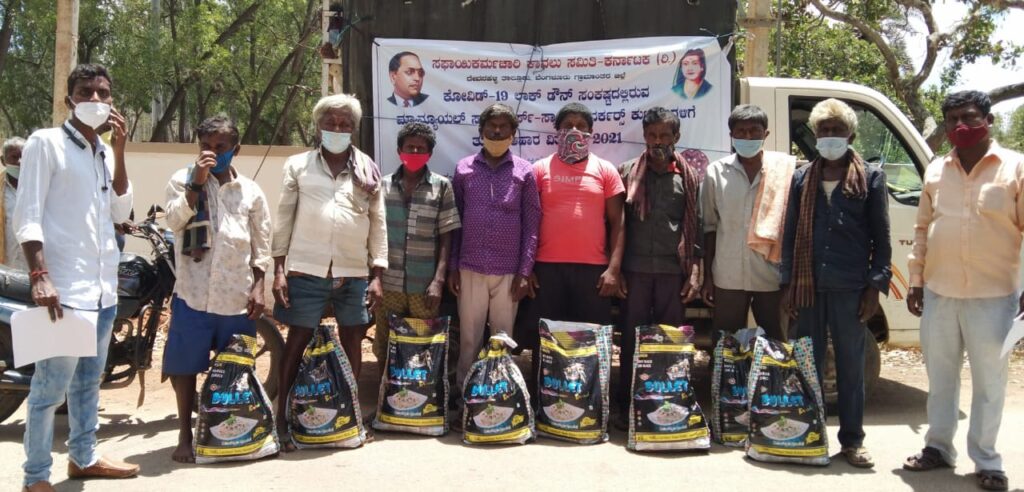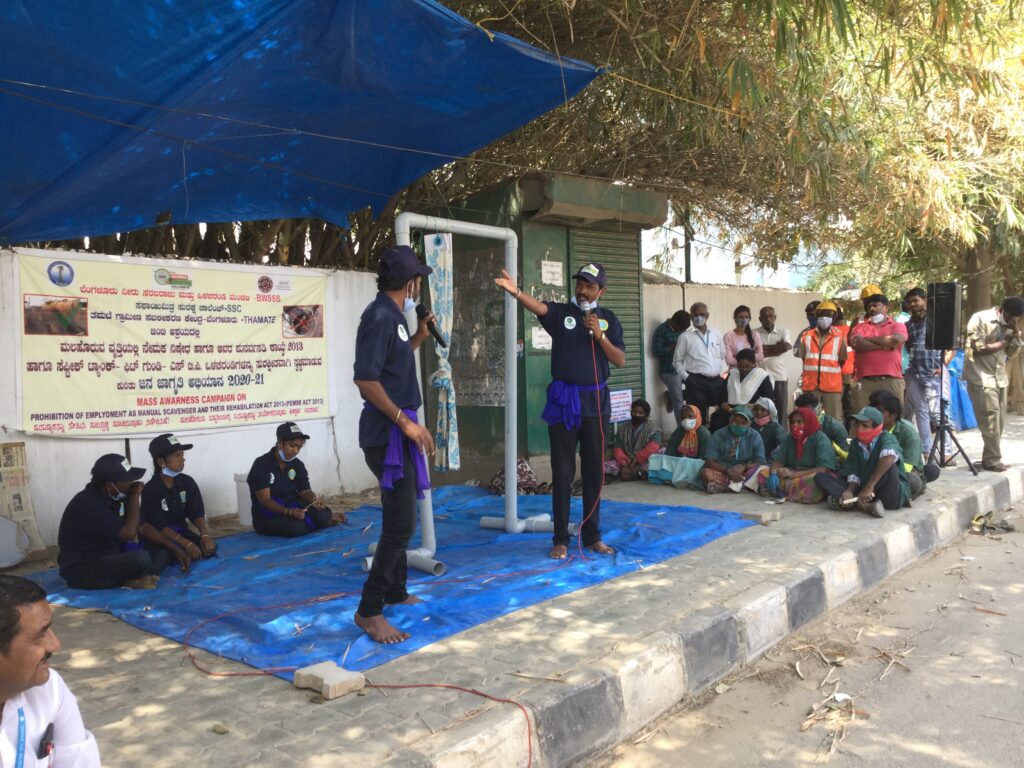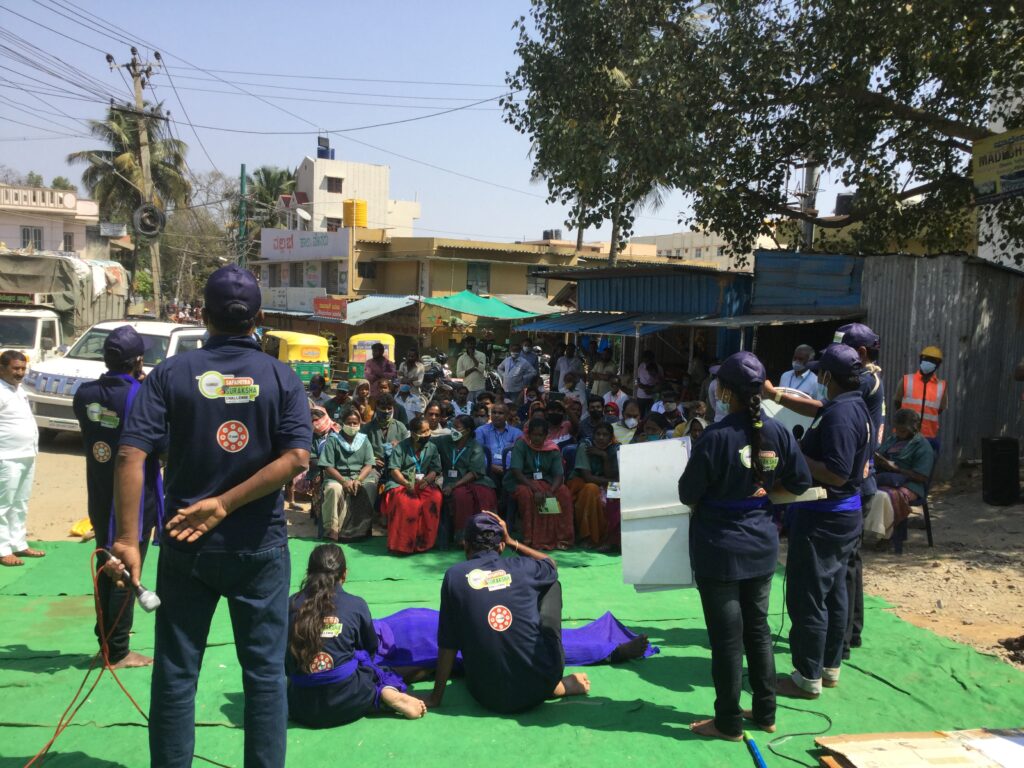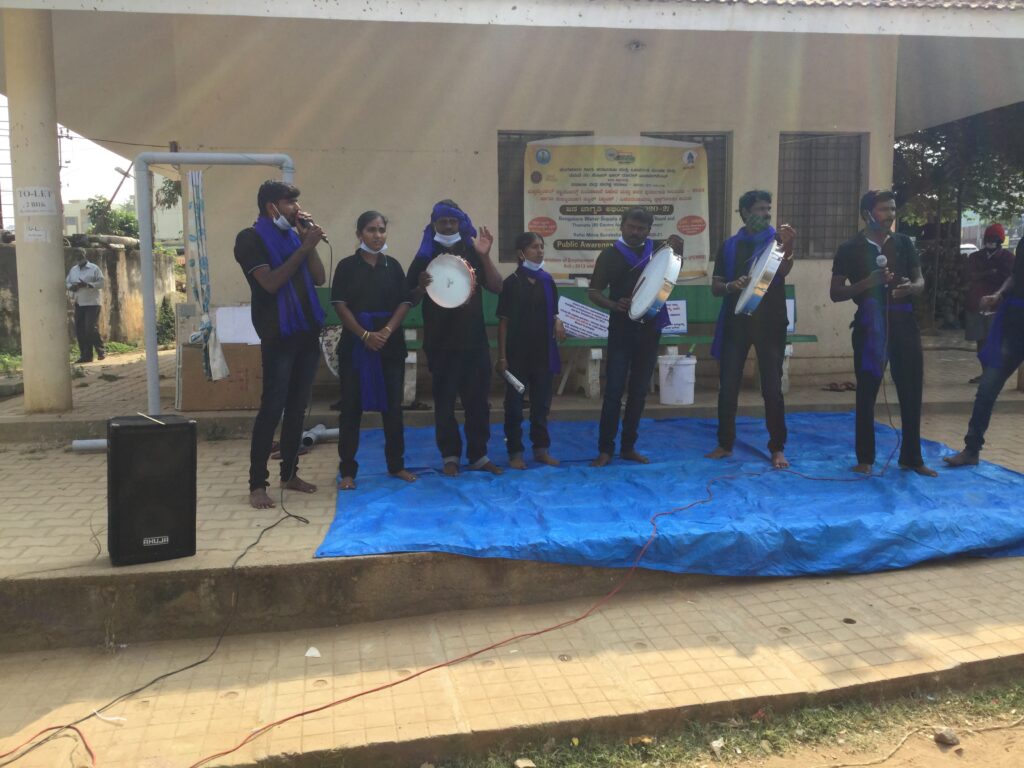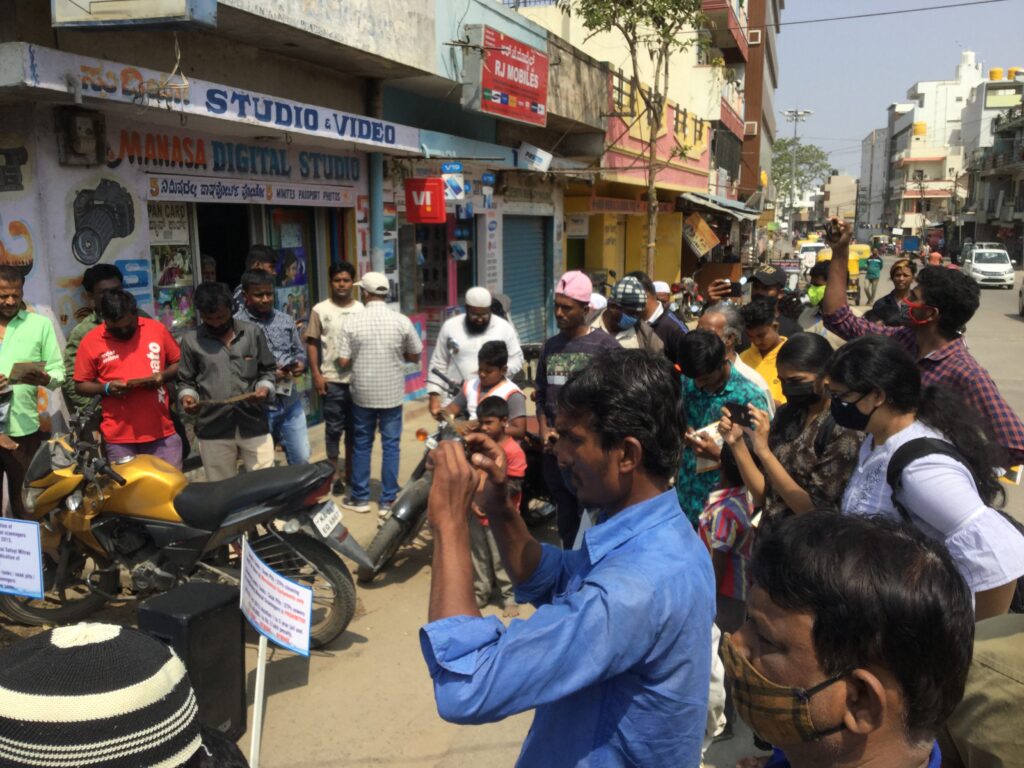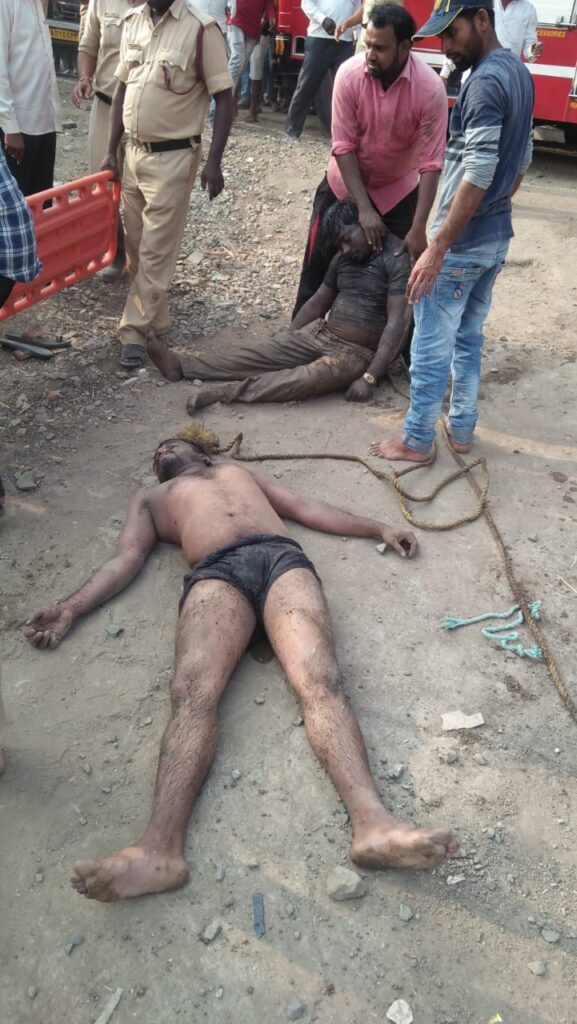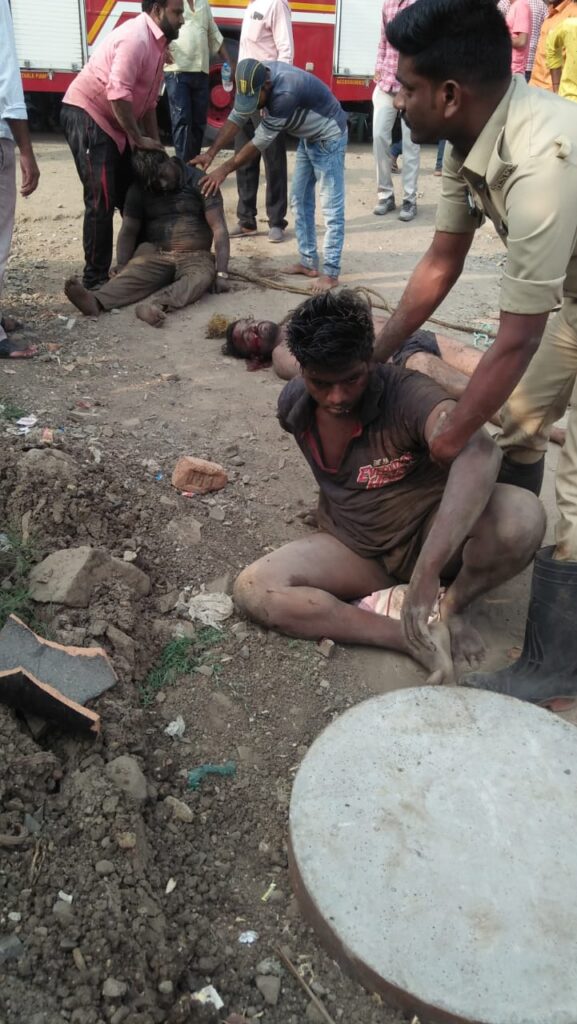ಕನ್ನಡ ವರದಿಗಾಗಿ ಕೆಳಗಡೆ ನೋಡಿ.
Date: 08-11-2024
A Report on the deaths in the Sewage Treatment Plant (STP) in Asha Sweets Factory in Sompura Industrial Area (Dobbaspete), Nelamangala taluka, Bengaluru Rural District
A team of Safaikarmachari Kavalu Samithi (SKKS)-Karnataka comprising Dr. K B Obalesh, (Convener, SKKS and Member, State Monitoring Committee under PEMSR Act 2013), Mr. Siddhalingaiah (Member, District Committee, Tumkuru, SKKS), Mr. Yamanurappa, Mr. Ramakrishna and Mr. Akshay Kumar visited the spot where the incident took place and spoke to the members of the families of both the deceased persons. This brief report is based on the spot visit and the interviews with he members of the families of the deceased workers.


1. Brief Description of the Incident
On 31-10-2024, at around 6:30 pm in the evening, two workers were made to enter, for the purpose of cleaning, a confined tank of a Sewage Treatment Plant (STP) at the Asha Sweet factory located in an industrial area near Dobbaspete, without providing any safety equipment and gears. Both the workers died at the spot because of inhaling the toxic fumes coming out of the confined tank. The workers working at the factory and the staff of the contractor responsible for the maintenance of the STP immediately called the police. The police made arrangements for the dead bodies to be pulled out of the confined tank and sent them to the Nelamangala government hospital.
Both the deceased workers – Lingaraju (26 years) and Naveen (26 years) – belong to the Kadu Golla community. Lingaraju is from Gajjalgunte village in Madhugiri taluka while Naveen is from Jakkenahalli village located near Chandrabhavi in Madakshira taluka in Andhra Pradesh. An FIR (CR No. 261/2024) was registered at the Dobbespete Police Station under section 7 and 9 of the Prohibition of Employment as Manual Scavengers and their Rehabilitation Act, 2013 and section 105 of the Bharatiya Nyaya Samhita, 2023 against the owner and concerned employees of Asha Sweets and the owner and concerned employees of the contractor company, JRR Aqua Pvt Ltd.
On the same day, some of the leaders from the Kadu Golla community, along with police officials and the lawyers representing Asha sweets held discussions at the Dobbaspete police station with the families of the deceased workers and convinced them to accept a compensation amount of Rs 15 lakhs for each family (Rs 10 lakhs from the factory owners and Rs 5 lakhs from the STP maintenance contractor). Accordingly, a cheque of Rs 10 lakhs was handed over by the lawyers of Asha sweets to a lawyer representing one of the families. As per this compromise settlement, the last rites of the both the workers were completed on the same day. The news regarding this incident was reported in The New Indian Express daily on 01-11-2024 and was later broadcast by several media channels.
2. Socioeconomic Background of the Deceased Workers
- Lingaraju (26 years), hailing from Gajjalgunte village in Madhugiri taluka, he had studied till degree level. He had a love marriage with Kavya, who lived in Belladamadagu village, DV Halli Gram Panchayat, Madhugiri taluka. They both lived together for 2-3 years, but subsequently because of marital problems, they had been living apart for the last two years. After being convinced by the elders of the family, they had only recently decided to resume living together. They were planning to rent a house in Bengaluru and shift there soon, according to the family members. Compensation Status: According to Mr. Shivakumar, a lawyer representing the family of deceased Lingaraju, out of the Rs 10 lakhs given by Asha sweets, a cheque for an amount of Rs 5 lakhs has been given jointly to Kavya and her mother-in-law and Rs 5 lakhs has been given to Lingaraju’s father.
- Naveen (26 years), hailing from Jakkenahalli (Jakkepalli) village in Madakshira taluka in Andhra Pradesh, is married and has a 5-year old daughter. His wife, Mani, has not been living with him for the past 2 years, as informed to us by the family members. Compensation Status: The compensationamount of Rs 10 lakhs given byAsha sweets company has gone wholly to Naveen’s wife, Mani. Naveen is survived by elderly parents, who have not received any compensation amount.
This settlement has been brokered by Advocate Shivakumar, Nelamangala Sub-division police officials, lawyers representing the company Asha Sweets and some community leaders.
3. Observations of the Fact-finding Team
- There are 400 workers who are working in the Asha Sweets factory. The urine and excreta from the toilets used by these works and waste water from the factory are conveyed to a Sewage Treatment Plant. On the day of the incidents, two workers were sent down to clean a confined tank by the contractor without providing any safety equipment and without giving any safety training to the workers.
- Both the daily wage workers died immediately because of inhaling toxic gases. The owners of the factory and the contractor acted in the most inhuman way by offering small compensation to the families of the deceased and convincing them to dispose off the dead bodies by conducting the last rituals, with the help of the police and some leaders of the community.
- Both of the workers come from poor background. Their families have little to no education. Both of them belong to the Kadu Golla community which is still in the grip of superstition and backwardness in the state. Two youths belonging to such a community, who had achieved education upto degree level were murdered by the owners of the factory and the contractors by sending them down the tank of the STP.
- A completely illegal compromise settlement was negotiated by the police regarding the compensation amount to be paid to the families.
4. Recommendations
- While an FIR has been filed under Section 7 and 9 of the Prohibition of Employment as Manual Scavengers and their Rehabilitation Act, 2013 and Section 105 of Bharatiya Nyaya Samhita, 2023 at the Dobbaspete PS, the owners of Asha Sweets and the contractor are yet to be arrested. They should be immediately arrested.
- The Nelamangala Sub-division police officials have brokered a compromise on behalf of the owners of Asha sweets with the help of their lawyers which is completely illegal. Disciplinary action should be taken against these police officials.
- The families of the deceased Lingaraju and Naveen should be provided compensation of Rs 30 lakhs and rehabilitation as per the 2023 directions of the Hon’ble Supreme Court in Balram Singh vs Union of India.
- The Karnataka State Safaikarmachari Commission should register a official complaint in the matter and ensure that the culprits are punished in the case. It should also be ensured that families of the deceased are provided with comprehensive rehabilitation including a government job and housing facilities.
- There are several factories in the Nelamangala and Dobbaspete Industrial areas which have operational STPs. Board with Warning Messages and Safety Instructions should be installed in front of all these STPs.
- An urgent meeting of all the officials concerned with regulation of construction, operation and maintenance in industrial areas should immediately be called and appropriate guidelines for safety of workers engaged in operation and maintenance of STPs should be issued.
Report in English.
Dobaspete_Report_EnglishReport in Kannada.
DABASPETE-STP-DEATH-2024-1




